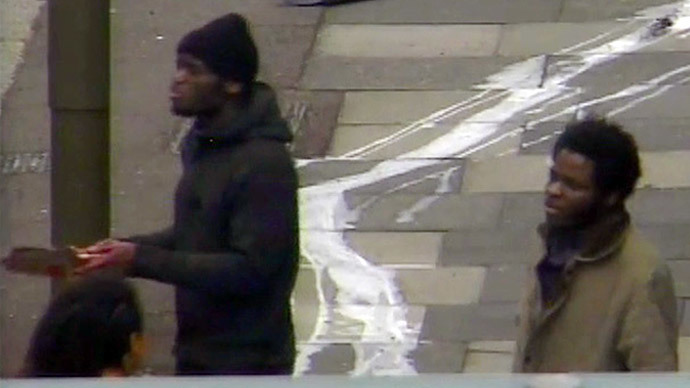MI6 complicity? Lee Rigby killer’s torture claims investigated, says Cameron

A new inquiry will be conducted into claims that MI6 were complicit in the alleged torture of Michael Adebolajo, one of the two men later convicted of murdering British soldier Lee Rigby in Woolwich in May 2013.
The investigation will focus on how the British spy agency handled claims Adebolajo was beaten by Kenya’s security forces, who have close ties with the UK, while detained there in 2010.
Prime Minister David Cameron ordered the inquiry after a report by Parliament’s Intelligence and Security Committee (ISC) criticized MI6, also known as the Secret Intelligence Service.
The committee’s report found MI6 never asked the Kenyan authorities about Adebolajo’s claims, dismissing them as fabricated.
“The committee has been concerned about the way SIS dealt with Adebolajo’s allegations of mistreatment. SIS does not seem to have taken them seriously, even in the wake of previous allegations,” it said.
Responding to the report, the government said Cameron had asked the Intelligence Services Commissioner Sir Mark Waller to look into the claims.
They claim Cameron “asked Sir Mark to examine the concerns raised by the committee about the government’s responsibilities in relation to partner counter-terrorism units overseas.”
“Sir Mark has started his examination and will report his findings in due course. SIS is cooperating fully with Sir Mark and will ensure any recommendations arising from his examination are fully addressed.”
READ MORE: ‘Beautiful man’? ISIS killer Jihadi John ‘radicalized by UK govt,’ claims charity
A judge and former Lord Justice of Appeal, Waller is currently tasked with reviewing activities such as surveillance and the interception of communications when these are not regulated by the Interception of Communications Commissioner.
Adebolajo claims he was beaten and repeatedly threatened with electrocution and rape while detained in Kenya in 2010.
The UK has close ties with Kenya’s anti-terrorism units, raising concerns British intelligence may have been aware of the ill-treatment.
In its report, the ISC said Adebolajo was interrogated by both Kenyan police and a counter-terrorism unit, the ATPU, who the ISC referred to as “Arctic.”
“This unit has a close working relationship with HM government,” the report said.
It went on to say that MI6 failed to investigate which Kenyan counter-terrorism unit Adebolajo claimed had tortured him.
“This is surprising: if Adebolajo’s allegations of mistreatment did refer to his interview by Arctic then HMG could be said to have had some involvement – whether or not UK personnel were present in the room.”
In one particular redacted paragraph, the ISC added: “Given that *** has a close relationship with Arctic, ***, this certainly could be enough to raise questions of complicity.”
The report also criticized former MI6 chief John Sawers for claiming the agency had no responsibility for looking into Adebolajo’s allegations.
READ MORE: British teenager found guilty of terror plot to behead soldier
According to the report, this claim was contradicted by an MI6 officer.
“We obviously need to investigate these allegations, which underline the need for continuing assurances from Kenyans on the issue of detainee treatment.
“We would be grateful if you could provide a summary of [HMG] and [Arctic] involvement in the investigation into Adebolajo,” the report quotes the unnamed officer as saying.
Sawers, who left MI6 in December to join global consultancy firm Macro Advisory Partners, is quoted by the ISC as saying: “[The ISC is] suggesting that somehow we should have treated this as an SIS responsibility, when it is simply not the case. It is not an SIS responsibility.”
The ISC said the MI6 officer’s email undermined that of Sawers, saying it supported the view that MI6 had a responsibility to investigation the allegations.
They went on to criticize MI6 for not initially providing the email as evidence.
“We note our concern that this email was not provided as part of the primary material initially offered in support of this inquiry as it should have been. It was clearly relevant to the issues under consideration,” the ISC report said.
There is currently no deadline set for Waller’s inquiry to report by.












